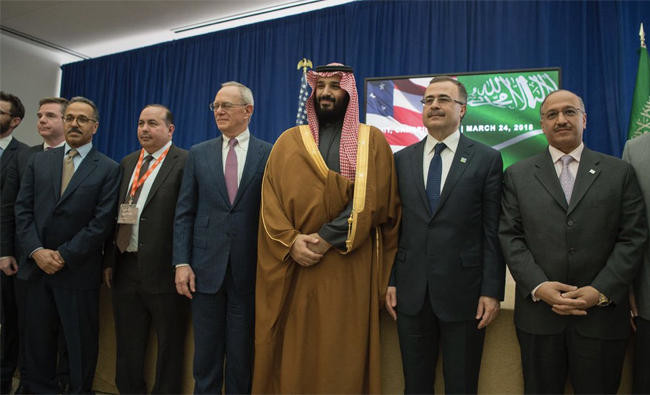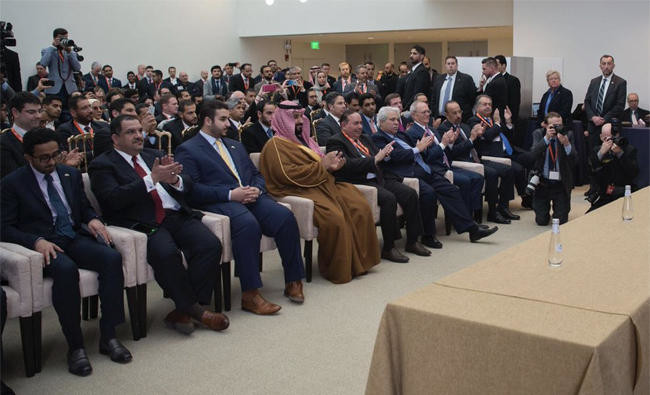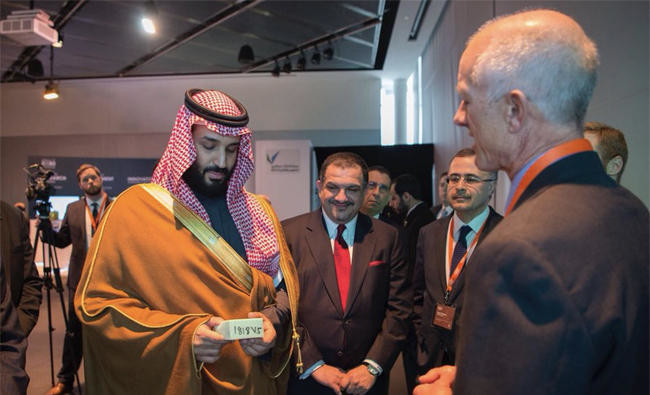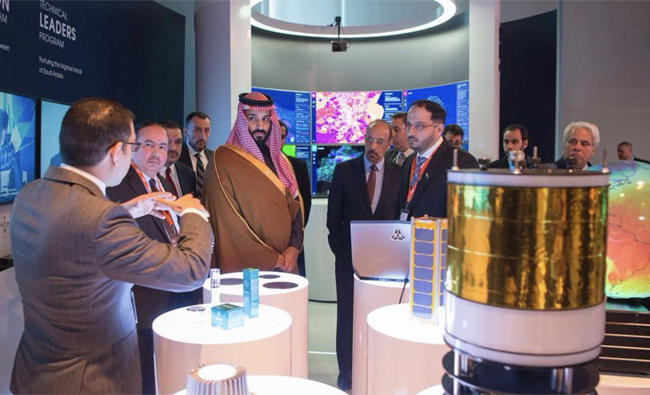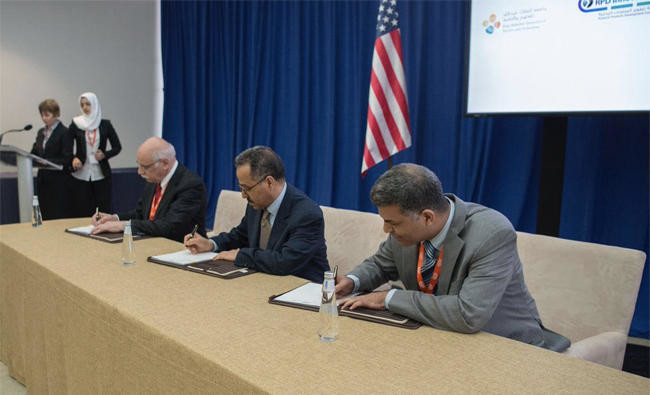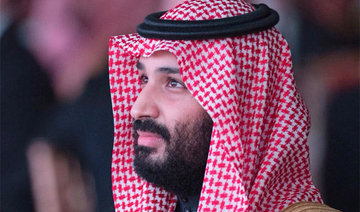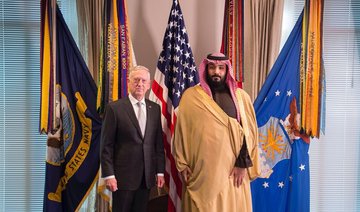JEDDAH: Saudi Arabia’s Crown Prince Mohammed bin Salman oversaw the signing of several agreements between Saudi and US universities as he toured a number of Boston institutions on Saturday.
At least seven agreements were struck during the visit, including a cooperation between state energy giant Saudi Aramco and the Massachusetts Institute of Technology (MIT) in the field of sustainable development in the energy sector.
The crown prince visited IBM Watson Health, which aims to empower advocates and influencers in the health care field, just one of his stops in the Massachusetts capital as he explores “areas of cooperation between the Kingdom and the United States,” the Saudi Embassy said in a tweet.
During the visit, the center’s Senior Vice President David Kenny briefed the crown prince on the potential applications of artificial intelligence in the health care field, according to the Saudi Press Agency (SPA).
The crown prince also toured the biomechatronics lab at Massachusetts Institute of Technology (MIT), where scientists work on technologies to restore function to individuals who have impaired mobility due to trauma or disease.
He also visited the Innovation Forum held at MIT, where he was briefed on the industrial innovations of Saudi universities and companies, and a selection of their technical products.
The King Abdullah University of Science and Technology (KAUST) displayed a biometric magnetic sensor for use in oil and gas exploration, and a project on smart cities and alternative energy use.
At the King Abdulaziz City for Science and Technology pavilion at MIT, four programs were presented, including the “Fast Innovation Track,” which seeks to establish an environment aiming to increase bilateral trade between Saudi Arabia and the US.
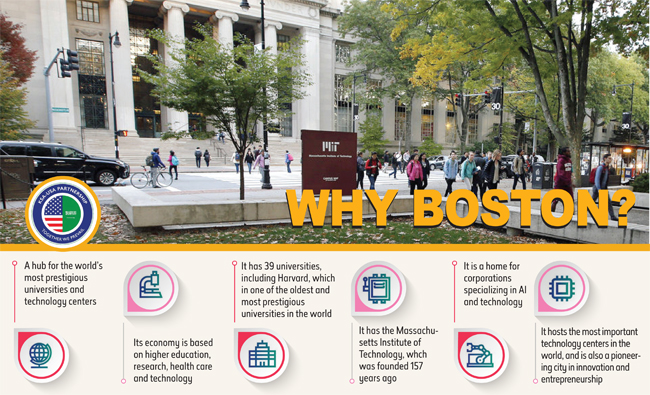
There were also pavilions associated with Saudi companies including SABIC and Aramco.
At the nearby Harvard University, the crown prince met with Provost Alan Garber and faculty members.
They reviewed aspects of cooperation between Saudi Arabia and the university in a number of fields, especially in the areas of advanced research of entrepreneurship, systems engineering and the development of education methods to cope with new challenges.
The crown prince also met with the heads of other major universities, colleges and institutes.
The meetings and visits were attended by Prince Khaled bin Salman, Saudi ambassador to the US, and the crown prince’s official accompanying delegation.
The crown prince is on a multi-city tour of the US, in a trip highlighting the ties between the longstanding allies.
He met US President Donald Trump on Tuesday and delivered a keynote speech at a gala function in Washington on Thursday, where he said the KSA-US relationship was one built on trust and strategic partnership.
Crown Prince Mohammed has met with US dignitaries during his visit, including Vice President Mike Pence and US Congress leaders as well as some of the heads of the largest corporations in America.
AGREEMENTS SIGNED IN BOSTON
A number of cooperation agreements were signed in the technical and research fields during the Saudi crown prince’s visit to Boston:
- Agreement between Saudi Aramco and Massachusetts Institute of Technology (MIT) in the field of the sustainable development in the energy sector.
- Agreement between SABIC and MIT in the field of pyrolysis research of natural gas.
- Agreement between King Abdulaziz City for Science and Technology and MIT to establish a research center in complex engineering systems.
- A cooperation between King Abdulaziz City for Science and Technology (KACST) and Brigham Women’s Hospital in the field of biomedicine.
- Partnership between KACST, King Abdullah University of Science and Technology (KAUST) and the Research Product Development Company to establish a vaccine and biotech production center at KAUST.
- The creation of an “Ibn Khaldun Fellowship” between MIT and KACST.
- Agreement between GE Healthcare and Fujifilm Diosynth Biotechnologies to establish a center for biologics manufacturing and vaccine development in order to supply equipment and develop treatments for Middle East Respiratory Syndrome (MERS).


